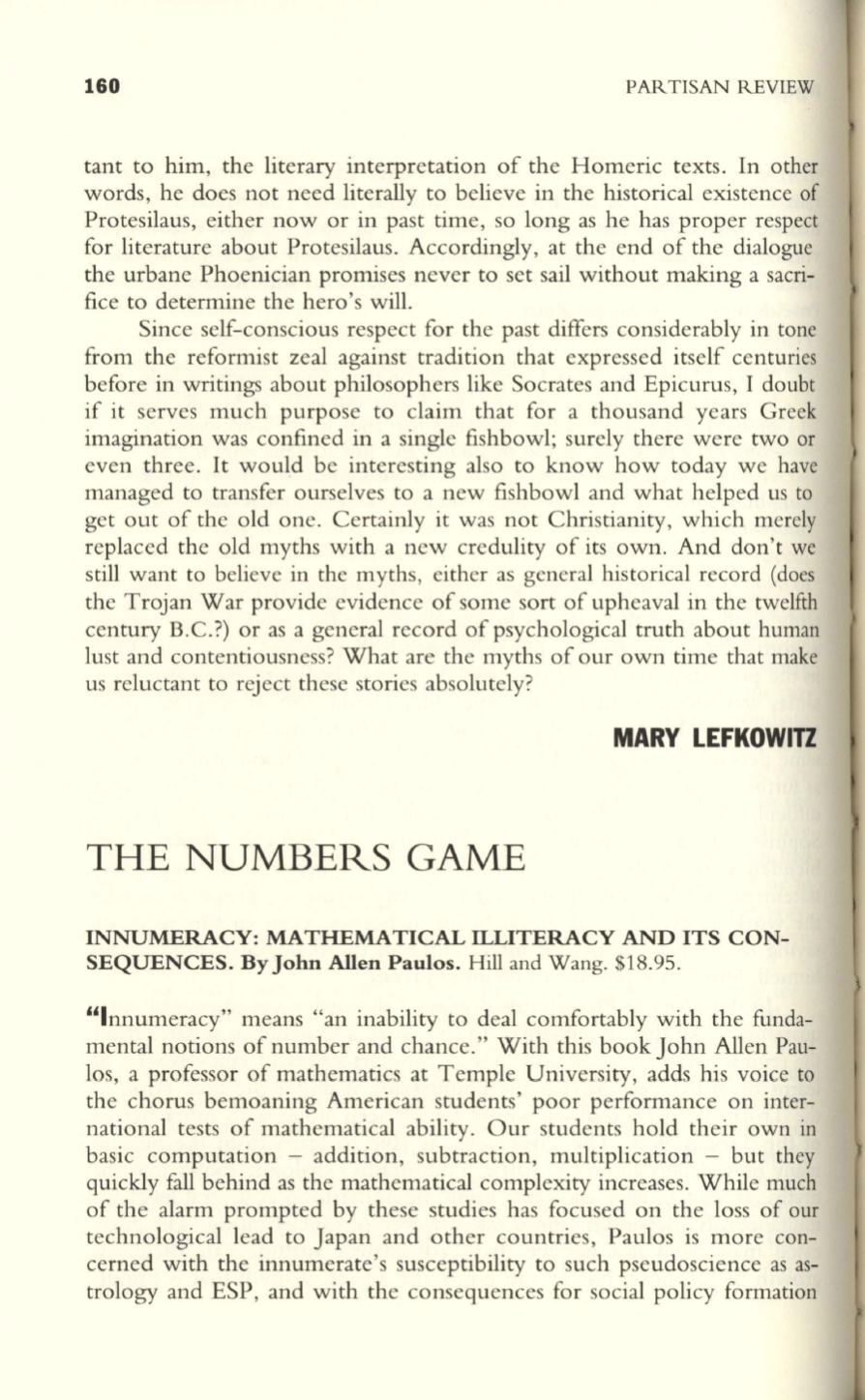
160
PARTISAN REVIEW
tant to him, the literary interpretation of the Homeric texts. In other
words, he does not need literally to believe in the historical existence of
Protesilaus, either now or in past time, so long as he has proper respect
for literature about Protesilaus. Accordingly, at the end of the dialogue
the urbane Phoenician promises never to set sail without making a sacri–
fice to determine the hero's will.
Since self-conscious respect for the past differs considerably in tone
from the reformist zeal against tradition that expressed itself centuries
before in writings about philosophers like Socrates and Epicurus, I doubt
if it serves much purpose to claim that for a thousand years Greek
imagination was confined in a single fishbowl; surely there were two or
even three. It would be interesting also to know how today we have
managed to transfer ourselves to a new fishbowl and what helped us
to
get out of the old one. Certainly it was not Christianity, which merely
replaced the old myths with a new credulity of its own. And don't we
still want to believe in the myths, either as general historical record (does
the Trojan War provide evidence of some sort of upheaval in the twelfth
century
B.C.?)
or as a general record of psychological truth about human
lust and contentiousness? What are the myths of our own time that make
us reluctant to reject these stories absolutely?
MARY LEFKOWln
THE NUMBERS GAME
INNUMERACY: MATHEMATICAL ILLITERACY AND ITS CON–
SEQUENCES. By John Allen Paulos. Hill
and Wang.
$18.95.
"Innumeracy" means "an inability to deal comfortably with the funda–
mental notions of number and chance." With this book John Allen Pau–
los, a professor of mathematics at Temple University, adds his voice to
the chorus bemoaning American students' poor performance on inter–
national tests of mathematical ability. Our students hold their own in
basic computation - addition, subtraction, multiplication - but they
quickly fall behind as the mathematical complexity increases. While much
of the alarm prompted by these studies has focused on the loss of our
technological lead to Japan and other countries, Paulos is more con–
cerned with the innumerate's susceptibility to such pseudoscience as as–
trology and ESP, and with the consequences for social policy formation


